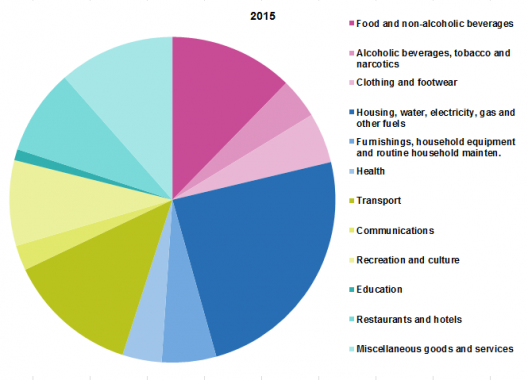Housing should not be a burden for Europeans
The Housing Europe reaction to the latest Eurostat briefing
Brussels, 30 November 2016 | Published in Economy, Future of the EU & Housing
The latest briefing issued by Eurostat highlights the pressing need for EU Member States to revert a dangerous trend in the overall cost of housing.
According to the Statistical Office of the Union “In 2015, households in the EU devoted nearly a quarter of their total consumption expenditure to housing, water, electricity, gas and other fuels. This represents a total spending of almost € 2 000 bn which is equivalent to 13.4 % of EU GDP and by far the most significant expenditure of EU households”. At a time when many European countries are at crossroads when it comes to shaping their future housing policies, the Eurostat findings make it clear that the vast majority of Europeans are in need of a different political approach to housing in order to make a decent living.
Laurent Ghekiere, the Chair of the Housing Europe Observatory, the Research Branch of the European Federation of Public, Cooperative and Social Housing underlines that:
“There is an absolute need to revert the trend identified by Eurostat. The fact that housing costs in most countries represent the first item of household expenditure and an increasing one urges all of us who are involved in the sector to work more intensively with decision makers towards more sustainable solutions for Europeans and a wider supply of affordable housing in the Union”.
Eurostat also stresses that the weight of the household expenditure allocated to housing has been growing over the last decade, moving from 22.5% in 2005 up to 24.4% in 2015. If one takes into consideration that in many countries significant property tax is imposed, it becomes clear that housing, both rental and owner-occupied, is increasingly used as a means to generate income for public budgets and other private entities that offer their services for social purposes, such as water supply, heating, energy etc. This link has to be loosened before more Europeans become overburdened by housing costs.
Additionally, it’s important to note that according to the Eurostat findings “the most significant increases over this 10-year time period were recorded in Spain, Ireland and Portugal”, or in other words in crisis-ridden countries. This means that housing and housing-related policies should be adaptable to the changing needs. As the ‘Housing for All’ campaign illustrated there are three main pillars around which change in housing policy shall be structured:
- Building more public, social and cooperative housing
- Increasing the quality of existing homes
- Making the cities more inclusive
The EU Pillar of Social Rights, if adequately shaped, can help supporting those demands.
It is increasingly important to link research and evidence in general with policy making in the housing sector. Public, Cooperative and Social Housing providers, therefore, believe that the Eurostat findings should be seen as a wake-up call both for the European Commission and for the governments across the EU.